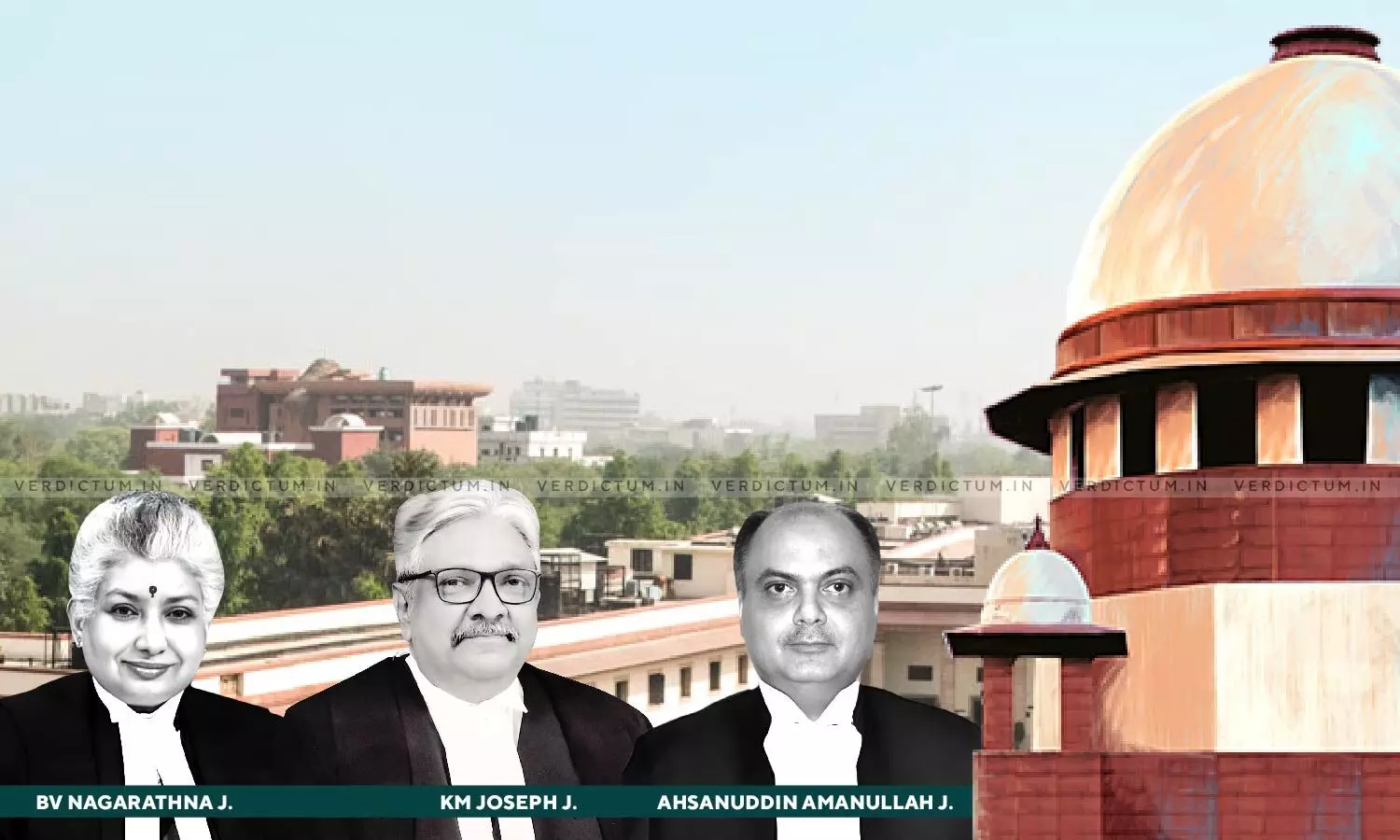
Credit Note Issued By Manufacturer To Dealer Is Valuable Consideration Within Definition Of Sale, Hence Exigible To Sales Tax: SC
 |
|The Supreme Court recently held that a transaction between manufacturer & dealer while acting pursuant to warranty, must be construed as sale within the meaning and definition of sale under Sales Tax Acts.
While reiterating that a credit note issued by a manufacturer to the dealer, is a valuable consideration within the meaning of the definition of sale and hence, exigible to sales tax under the respective State enactments of the States under consideration, a Three Judge Bench of Justice K M Joseph, Justice B V Nagarathna and Justice Ahsanuddin Amanullah observed that “dealers are liable to pay sales tax under the respective State enactments under consideration”.
Senior Advocates Santosh Kumar Bagaria, Kavin Gulati, Amar Dave, RK Raizada, V Sridharan, Manish Singhvi appeared for the Appellant, whereas, AAGs Nikhil Goel, Saurabh Mishra, Dy. AG Ankita Chaudhary, Senior Advocates Pallav Sisodia and S. K. Upadhaya appeared for the Respondent.
Going by the background of the case, the Appellant (Assessee – Marudhar Motors is a dealer of TATA Vehicles) entered into dealership agreement for providing replacement of warranty goods sold to the customer. In the normal course of business transactions involving the sale of automobile parts, Tata Motors sells vehicles and spare parts to Marudhara Motors by charging CST against "C" form. In case of warranty claims raised by customers, the dealer, on behalf of the manufacturer, collects a defective component or the vehicle itself from the customer and replaces it with parts or vehicle in his stock purchased from the manufacturer. These defective components or vehicle received on exchange by the dealer from the customer is returned back to the manufacturer from whom the dealer had purchased the same in the first place i.e., Tata Motors, who after receiving the parts or the entire vehicle and satisfying themselves about it being defective, issues credit notes, thereby crediting the running account of the dealer which is maintained for sale transactions, at the price at which the good was initially sold to the dealer. Pursuant to the decision of this Court in Mohd. Ekram Khan, the assessing authority invoked the power of reassessment u/s 30 of the Rajasthan Sales Tax Act, 1994 to impose a tax on assessee's turnover having escaped assessment. When the matter reached High Court, it was held that the transaction between manufacturer and dealer, pertaining to the return of defective parts to the manufacturer and the issue of credit notes to the dealer, is independent of the transaction between manufacturer and customer, pertaining to the discharge of warranty obligation.
After considering the submission, the Larger Bench of the Apex Court found that an automobile dealer cannot escape liability merely because the dealer is acting as an intermediary or on behalf of manufacturer pursuant to a warranty and receives a recompense in the form of a credit note and said amount is nothing but a price received for a sale of a spare part by the dealer.
The Larger Bench highlighted that a dealer of automobile in whose account a credit is shown would be ultimately a recipient of a 'valuable consideration' on account of a transfer of goods, namely, spare part by a dealer to a customer while discharging his obligation under a warranty.
The Bench elaborated that there can be various methods of payment and statutory definition of 'sale' under CST Act as well as under State enactments, but, same does not imply price to mean only a money consideration in a narrower sense but in a wider sense to include different forms of money consideration also a valuable consideration, which would include a credit note.
“When the dealer is acting pursuant to a warranty, there are two aspects to be considered (i) there is transfer of property between dealer and customer/purchaser of the automobile on the one hand and (ii) receipt of a valuable consideration by the dealer for the same from the manufacturer on the other in the form of a credit note and thus the bifurcation of the two transactions "cannot be accepted", added the Bench.
While clarifying that the dealer replaces a defective part of the automobile by a spare part maintained in the stock of the dealer or when the same is purchased by the dealer from the open market, the Apex Court concluded that in such situations, the credit note issued in the name of the dealer is a valuable consideration for a transfer of property in the spare part made by the dealer to the customer and hence a sale within the meaning of the sales tax legislations of the respective States under consideration.
Cause Title: Tata Motors Ltd v. Deputy Commissioner of Sales Tax and Anr.
Click here to read/download Judgment